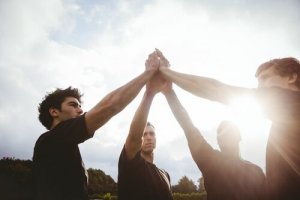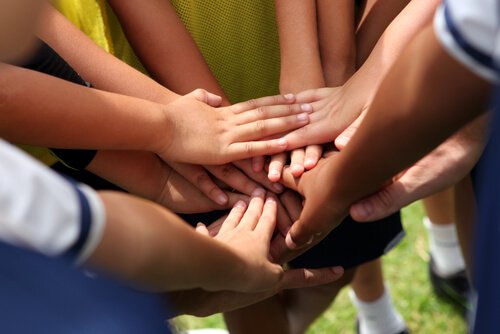Team Sports and Personal Development: How Are They Related?

Team sports have an influence on personal development. Sports are an endless source of both physical and mental health. They not only help us release energy in a directed and controlled manner but also can be an incentive for our personal development.
Sports is an extraordinary tool in all stages of life. Certainly, this is even truer when we’re very young and developing our personalities.
The stages of childhood and adolescence are crucial. These are the times when people are the most vulnerable. Therefore, what occurs in those phases will be positive or negative marks in the development of individuals. Moreover, it’ll influence their personal growth.
In many cases, the sports venue is the place where a person first begins to work on a shared goal. Consequently, an individual is sacrificing their own personal interests for a sport.
For instance, maybe a child wants to play the position of forward on a soccer team. Still, it would be better for the team if they play defense. This is the time to negotiate, to hang back or appreciate the effects of generosity and sacrifice.
In this article, we want to talk about all the advantages that team sports offer. We’ll start by discussing personal development.
What’s Personal Development in Team Sports?
Personal development is a process in which people try to discover or perfect all of their potential strengths. The idea is to achieve our goals, desires, and ambitions, motivated by our interest in reaching our goals and the need to give meaning to our lives (Dongil E. and Cano A., 2014).
This development depends on many factors, from the environment we grow up in, to our individual traits or the society in which we find ourselves. In fact, we would say that biological processes and individual and social processes interfere with personal development.
Erikson’s epigenetic principle claims that all human beings have a basic plan of development. Apart from this plan that composes all of the parts, each of them has their appropriate time of maturation and activity, until they’re all functioning (as cited in Bordignon, 2005).

Team Sports
Taking into account the definition of personal development, and how it was described in the introduction, we can figure that it’s related to playing sports.
In team sports, various teammates cooperate and collaborate for the objectives of the game. That common goal should be achieved by way of a consensual strategy and approved by the members of the team.
Likewise, we would be able to deduce that what motivates the group is the accomplishment of the objectives that are set out in advance. It’s important to understand that, in order to participate in a sport, there are explicit rules that participants must follow. As expected, these rules have to do with the respect of the game, its team, and the people participating.
Consequently, if the rules aren’t respected, there will be sanctions from the referee or umpire, depending on the sport. There will also be consequences from the opposing team and the player’s own team. This idea of standards is what makes it possible for the athletes to stay in line protecting the sport from individuals and from other groups.
Given that sports can lead to personal development, practicing a team sport has many benefits. Also, sports foster skills and values that can be developed from practice:
- A feeling of belonging
- Working in a team
- Respect
- Decision making
- Loyalty
- Overcoming obstacles
- Discipline
- Responsibility
- Empathy
- Understand equality and avoiding discrimination
- Active listening
- Learning how to use leisure time
Conclusion
There are different ways to practice team sports. The most popular tend to be soccer and basketball. In addition, there are others such as rugby, handball, water polo, synchronized swimming, volleyball, rafting, etc. All of these can develop the same values and teach the same skills.
In conclusion, the important thing is to participate in activities that allow us to grow and develop in all aspects of life. As a result, they can help us to be independent and empowered people.
All cited sources were thoroughly reviewed by our team to ensure their quality, reliability, currency, and validity. The bibliography of this article was considered reliable and of academic or scientific accuracy.
- Bordignon, N. A. (2005). El desarrollo psicosocial de Eric Erikson. El diagrama epigenético del adulto.
- Buceta, J. M. (1995). Interveción psicológica en deportes de equipo. Revista de psicología general y aplicada: Revista de la Federación Española de Asociaciones de Psicología, 48(1), 95-110.
- Collado, E. D., & Vindel, A. (2014). Desarrollo personal y bienestar. Sociedad Española para el Estudio de la Ansiedad y el Estrés. España.
- Garcia Mas, A., & Vicens Bauzá, P. (1994). La psicología del equipo deportivo: Cooperación y rendimiento. Revista de Psicología del Deporte, 3(2), 0079-89.
- Salguero, A. R. C. (2010). El deporte como elemento educativo indispensable en el área de Educación Física. EmásF: revista digital de educación física, (4), 23-36.
- Sanmartín, M. G. (2004). El valor del deporte en la educación integral del ser humano. Revista de educación, 335, 105-126.
This text is provided for informational purposes only and does not replace consultation with a professional. If in doubt, consult your specialist.








